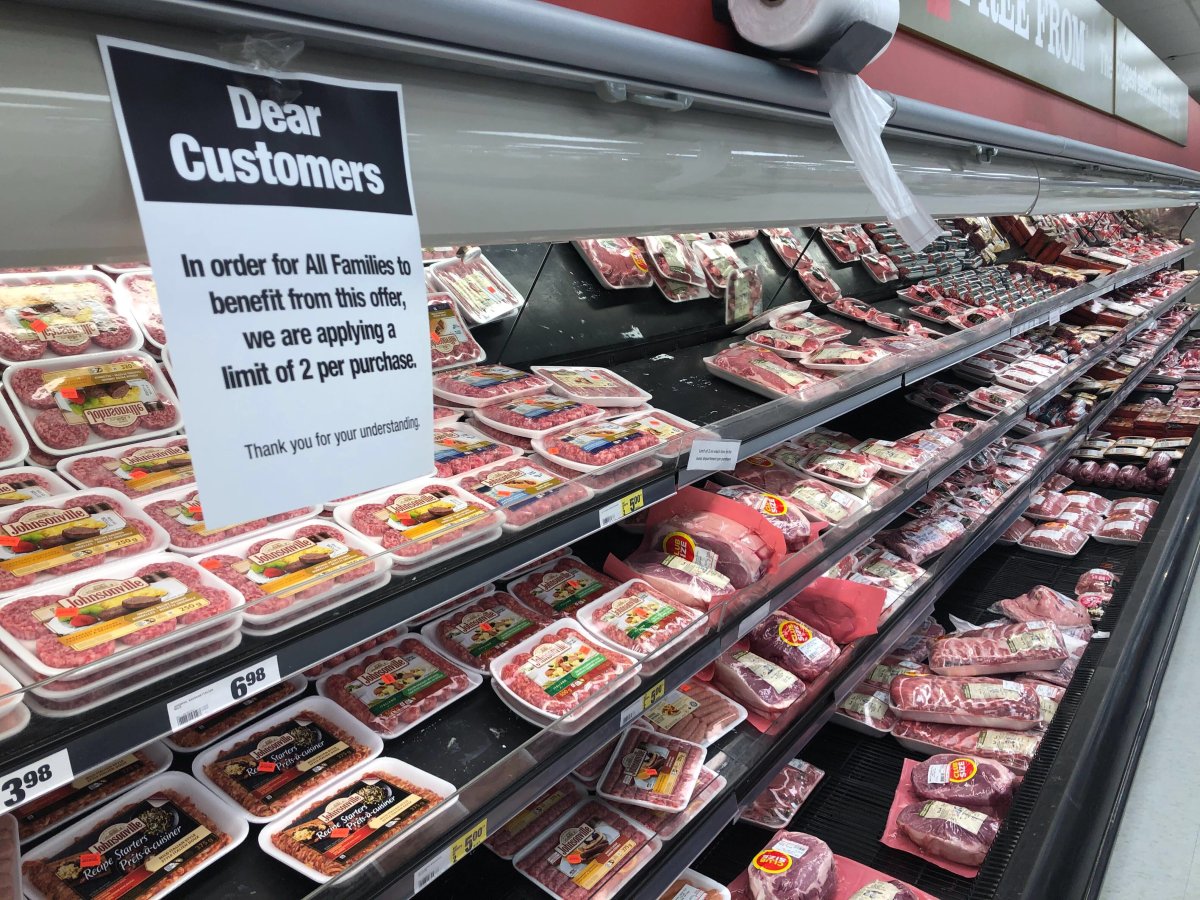Where’s the (ground) beef?

Some Winnipeg grocery stores — including select Sobey’s, Red River Co-op, Superstore, Costco and Walmart — have limited ground beef purchases to just one or two per customer.
But the Retail Council of Canada’s Manitoba director of government relations, John Graham, said those limits are not due to COVID-19 outbreaks that led to shutdowns at two major Alberta beef processing plants.
Rather, it’s due to customers’ changing shopping habits and panic buying in fear of shortages.
“Consumers are creating self-inflicted shortages in stores — across the board, retailers are not restricting the availability of meat products,” Graham said.
The limits are not due to supply chain issues, according to Graham.
“There won’t be any issues that we anticipate in the near-term,” he said of potential beef shortages.
However, grocery stores have had to adapt to changing customer demand amid the COVID-19 pandemic.
“Over the past six weeks, grocery stores have had to adjust with the changing ways customers are consuming and accessing their food — with restaurants closed, with people not going to work, with schools shut down, there’s more food consumed at home,” Graham said. “Patterns of predictability, where you would know Friday, Saturday and Sunday are the busiest days in the stores — that no longer applies.”

People are now shopping throughout the week to avoid coming in close contact with other people, Graham said, while making larger purchases to limit time outside of their homes.
Taking fewer outings for groceries is in line with public health advice.
“I would encourage Manitobans to buy what lasts, if they can, for that week, for that two weeks, to minimize their exposures outdoors,” Dr. Brent Roussin, Manitoba’s chief public health officer, said at his Wednesday COVID-19 press briefing.
Questions about COVID-19? Here are some things you need to know:
- What is a halal mortgage? How interest-free home financing works in Canada
- Capital gains changes are ‘really fair,’ Freeland says, as doctors cry foul
- Ontario doctors offer solutions to help address shortage of family physicians
- ‘Dangerous message’: Experts slam anti-sunscreen claims circulating online
Health officials caution against all international travel. Returning travellers are legally obligated to self-isolate for 14 days, beginning March 26, in case they develop symptoms and to prevent spreading the virus to others. Some provinces and territories have also implemented additional recommendations or enforcement measures to ensure those returning to the area self-isolate.
Symptoms can include fever, cough and difficulty breathing — very similar to a cold or flu. Some people can develop a more severe illness. People most at risk of this include older adults and people with severe chronic medical conditions like heart, lung or kidney disease. If you develop symptoms, contact public health authorities.
To prevent the virus from spreading, experts recommend frequent handwashing and coughing into your sleeve. They also recommend minimizing contact with others, staying home as much as possible and maintaining a distance of two metres from other people if you go out.
For full COVID-19 coverage from Global News, click here.





Comments